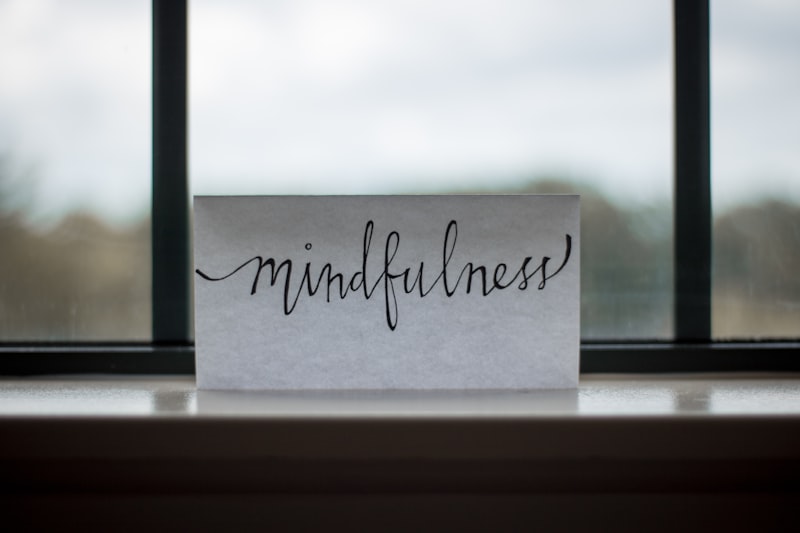What Are the Signs of Burnout?
First off, think of burnout as that pesky leak that keeps draining your energy. It starts with emotional exhaustion. If you’re finding yourself unusually irritable or feeling overwhelmed by tasks that used to be manageable, it’s a red flag. Imagine trying to pour from an empty cup—nothing seems to go right, and every little task feels like a mountain to climb.
Next, there’s a noticeable drop in productivity. Have you been staring at your to-do list, feeling paralyzed and unmotivated? Burnout can make even the smallest tasks seem Herculean. It’s like being stuck in quicksand: the more you struggle, the deeper you sink.
Physical symptoms are another telltale sign. Frequent headaches, stomach issues, or just feeling perpetually drained? Your body often reflects what’s happening inside your mind. It’s as if your body is sounding the alarm bell that your mental reserves are critically low.

So, if you’re recognizing these symptoms, don’t ignore them. Burnout isn’t just a rough patch—it’s a signal that your well-being needs attention.
Identifying Burnout: 10 Key Signs You Shouldn’t Ignore

Another red flag is detachment from your work. If you find yourself feeling disconnected or indifferent towards your responsibilities, it’s a strong signal that you’re not just having a bad day. Are you feeling more irritable or cynical than usual? Burnout can heighten your negativity, making everyday interactions feel like battles.
Increased forgetfulness and difficulty concentrating are also signs. When your brain feels foggy and your memory lapses, it’s not just a phase; it might be burnout zapping your cognitive energy. Pay attention if you’re seeing a decline in productivity or struggling with tasks that once came easily.
Physical symptoms can’t be ignored either. Frequent headaches, digestive issues, or muscle tension might be your body’s way of saying it’s overwhelmed. If you’re experiencing these regularly, it’s time to take a closer look at your mental health.
Lastly, if you’re withdrawing from social interactions or finding solace in isolation, burnout could be the cause. Healthy social connections are vital, and pulling away can be a sign of deeper issues. Keep an eye out for these signs, and remember, acknowledging them is the first step towards recovery.
Burnout Alert: How to Recognize the Early Warning Signs
Ever feel like you’re running on empty, even though you just started your day? That’s your body’s way of waving a red flag that you might be heading towards burnout. Burnout isn’t just about feeling tired; it’s a gradual descent into exhaustion that can sneak up on anyone. So, how can you spot it before it takes over?
First off, keep an eye on your mood. If you’re snapping at colleagues or feeling unusually irritable, that’s a sign. It’s like driving a car with a sputtering engine—something’s definitely off. Emotional exhaustion often goes hand-in-hand with burnout. If you’re finding it hard to muster enthusiasm for tasks you once loved, that’s a huge red flag.
Next, check your energy levels. Feeling constantly drained, even after a full night’s sleep? That’s a major clue. It’s not just about being tired; it’s about feeling like you’re dragging through quicksand. Your productivity might also drop sharply, and you might notice that what once took minutes now feels like hours.
Physical symptoms are another key indicator. Frequent headaches, stomach issues, or muscle tension could be your body’s way of saying it’s had enough. Burnout can manifest physically, so these signs shouldn’t be ignored.
Lastly, consider how you’re managing stress. Are you feeling overwhelmed by even the simplest tasks? This isn’t just about having a lot on your plate; it’s about feeling paralyzed by it. Recognizing these early signs can help you take action before burnout consumes your entire well-being.
From Exhaustion to Detachment: Understanding the Signs of Burnout
Burnout manifests in various ways. Physically, it might feel like you’re running on empty, as if you’ve been sprinting on a treadmill that never stops. Your body might protest with persistent headaches, insomnia, or stomach issues. Mentally, burnout makes everything seem foggy and insurmountable. Tasks that were once second nature now feel like climbing Everest.
Emotionally, you may notice a stark detachment from your work or relationships. You’re no longer engaged; instead, you’re just going through the motions. It’s like being at a party where you don’t know anyone and just want to leave. This detachment can also make you cynical or irritable, snapping at the smallest annoyances because your patience is thin.
Burnout also affects your productivity. What used to be a smooth, flowing process is now a series of missed deadlines and incomplete tasks. It’s as if you’re trying to wade through quicksand—no matter how hard you try, you’re stuck in the same place.
Identifying these signs early can help you regain control and shift from this state of burnout. Recognizing them is the first step toward reclaiming your energy and enthusiasm for life.
Are You Burned Out? 7 Subtle Indicators to Watch For
First, consider your energy levels. If you’re constantly dragging yourself through the day, it’s a red flag. Even after a full night’s sleep, do you still feel like you’ve been hit by a truck? That’s not normal.
Next, pay attention to your mood. Are you snapping at people or feeling unusually irritable? Burnout can turn even the most serene person into a ticking time bomb. It’s like living with a storm cloud hovering overhead, ready to rain on any conversation.
Also, think about your motivation. Have you noticed a sharp drop in your enthusiasm for work or personal projects? When passion fades, it’s often a sign that burnout is setting in. It’s as if the spark that once lit up your day has fizzled out.
Then, there’s the physical toll. Unexplained headaches or frequent colds might be more than just coincidental illnesses—they could be your body’s way of signaling that it’s overstressed.
Another subtle sign is a lack of focus. If you find yourself struggling to concentrate or getting easily distracted, your brain might be overloaded. It’s like trying to read a book with pages torn out—nothing makes sense.
Lastly, look at your social life. Are you withdrawing from friends or avoiding social activities you once enjoyed? Burnout often makes people retreat into their shells, pulling away from the things that used to bring them joy.
Recognizing these signs early can help you take steps to address burnout before it takes a deeper toll on your life.
The Hidden Symptoms of Burnout: What to Look Out For
Imagine burnout like a creeping fog. At first, it’s just a little haze, barely noticeable. You might start feeling unusually tired, but not the kind of tired that a good night’s sleep fixes. It’s a deep, pervasive fatigue that seeps into your bones. Are you finding yourself dreading work or feeling unmotivated even on days when you used to be excited? That’s a red flag.
Another sneaky symptom is irritability. Ever find yourself snapping at loved ones or colleagues over trivial matters? This heightened sensitivity can be a sign that you’re pushing yourself too hard. Your patience might wear thin, and the smallest inconveniences can feel monumental.
Don’t overlook physical symptoms, either. Burnout can manifest as frequent headaches, muscle tension, or digestive issues. It’s almost as if your body is trying to scream for help through these physical complaints.
Also, consider your mental landscape. Are you struggling with concentration or finding it difficult to make decisions? It’s like trying to see through that fog again—everything feels cloudy and confusing. Memory issues can also crop up, making you question if your mind is playing tricks on you.
Burnout doesn’t always come with a dramatic entrance. It can be subtle, like a whisper of discontent. By staying attuned to these hidden symptoms, you can take steps to address them before they become overwhelming.
Burnout Breakdown: 10 Critical Signs You’re Overwhelmed
One major sign is persistent fatigue. If you’re finding it hard to get out of bed despite a full night’s sleep, it’s a red flag. Another clue is a lack of motivation. When tasks that once excited you now seem impossible to tackle, your enthusiasm is likely running on empty. And let’s not forget the emotional detachment—if you’re feeling numb or disconnected from your work or personal life, your burnout levels might be peaking.
Increased irritability is another clear indicator. Do you find yourself snapping at colleagues or loved ones over trivial matters? That’s your stress talking. Cognitive problems, such as trouble concentrating or making decisions, can also signal burnout. It’s like trying to focus on a single voice in a crowded room; everything feels overwhelming.
Physical symptoms like headaches, stomach issues, or frequent illness can point to burnout as well. If you’re constantly battling minor health problems, your body could be crying out for a break. Additionally, a drop in productivity might be evident. If you’re working harder but seeing fewer results, it’s not your work ethic—it’s burnout affecting your performance.
Lastly, withdrawing from social activities you once enjoyed is a significant sign. If you’re isolating yourself from friends and hobbies, it’s time to take a closer look at your stress levels.
